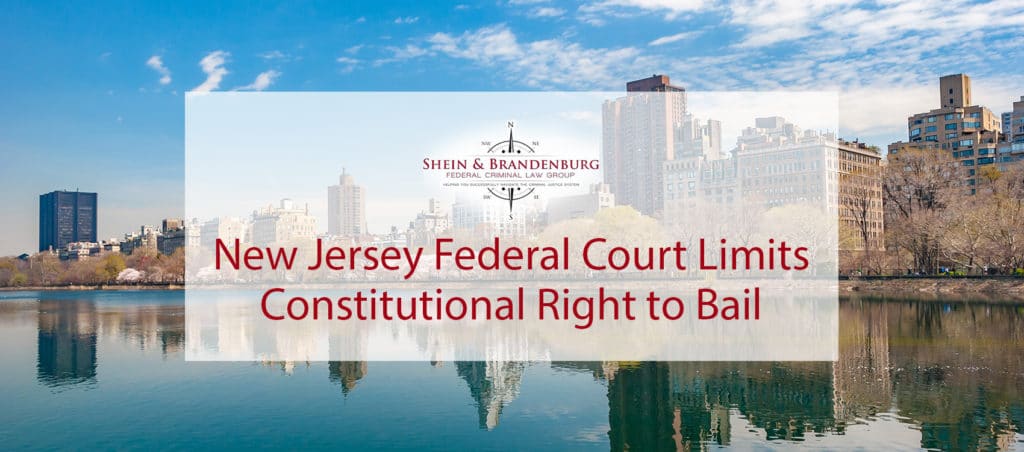Understanding Bail Laws In New Jersey
In July of 2018, a federal appellate court in New Jersey ruled that criminal defendants do not have a constitutional right that guarantees the choice to pay a cash bail so that they can be released prior to a trial. This decision defies New Jersey’s recent bail reforms, which limit the rights of individuals in bail cases, and greatly weakens the state’s bail bond industry.
Challenges Against New Jersey’s New Bond Laws
The decision, in this case, arose from a federal lawsuit filed by a man who was arrested and convicted of aggravated assault in 2017 after participating in a bar fight. It was a matter of time, however, before an appellant challenged these regulations, which were created to both benefit defendants who are too poor to pay bonds as well as empower judges against dangerous defendants and defendants who are likely to flee before a trial occurs.
What New Bond Laws in New Jersey Mean
The current bail regulations in New Jersey eliminate bail money in preference of other measures that restrict the possibility that a defendant commits another crime or avoids attending court dates. Under these new laws, if a judge views a defendant as too much of a risk to be released and placed under home arrest, a judge is able to keep a defendant in prison.
Previous New Jersey law would have allowed a judge to assign the defendant a bail amount, which the man could have paid to go free. In accordance with New Jersey’s new regulations which became effective in 2017, however, the man was not offered an amount of bail that could be paid that would allow him to be released. Instead, the man did not pay any amount in bail and was placed on house arrest and required to wear a GPS monitor.
The Court’s Decision About New Jersey’s Bond Laws
A three-judge panel for the Third Circuit Court of Appeals ruled against the defendant. The Court found that even if the Eighth Amendment is viewed as guaranteeing a right to bail, this right does not mean that a defendant is automatically offered the ability to pay a certain amount of money to be released prior to a trial.
Speak with a Skilled Federal Appeal Attorney
It is still uncertain if the defendant will decide to appeal the court’s ruling. Additionally, the court refused to acknowledge that the Lexington National Insurance Corporation, which issues bail bonds, does not have standing in this case.
As a result of this decision, it is important for individuals interested in basing appeals on bond issues to understand that courts continuously restrict these rights. If you are interested in creating a federal criminal appeal, you need the assistance of a skilled lawyer. Contact the Federal Criminal Law Center today to schedule a free case evaluation.


